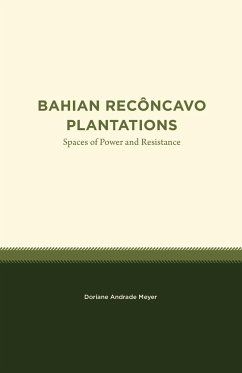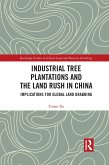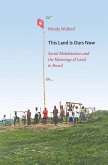This book explores the built environments of the Bahian Reconcavo plantations and their historical significance in the African Diaspora. More than one million Africans were brought to work in the sugarcane plantations of the Reconcavo region. This massive influx of enslaved Africans had a profound impact on society, influencing various aspects of culture, demographics, and social structures. The plantations, which were vital to the Brazilian economy, became symbolic of the spatial systems of exploitation associated with slavery. However, despite the spatiality control exerted by plantation owners, the plantations also became spaces of resistance, where the enslaved population employed various strategies to circumvent the system. Framed by theories proposed by Michel Foucault, Pierre Bourdieu, and James Scott, this analysis delves into various sources-including archival materials and site visits-to provide a comprehensive understanding of how the spatiality of plantations influenced the behavior of their inhabitants. By examining the physical structures, spatial organization, and the lived experiences within the Reconcavo plantations, this study aims to expose the complex interplay between power, resistance, and the lasting influences on the built environment of the Brazilian cities. By uncovering these multifaceted connections, it becomes imperative to acknowledge the profound legacies embedded within the design of these plantations, and how they continue to shape Brazilian architecture and society. Understanding these ramifications is vital for fostering a more inclusive and equitable society, not only in Brazil but also in a broader context.
Hinweis: Dieser Artikel kann nur an eine deutsche Lieferadresse ausgeliefert werden.
Hinweis: Dieser Artikel kann nur an eine deutsche Lieferadresse ausgeliefert werden.







